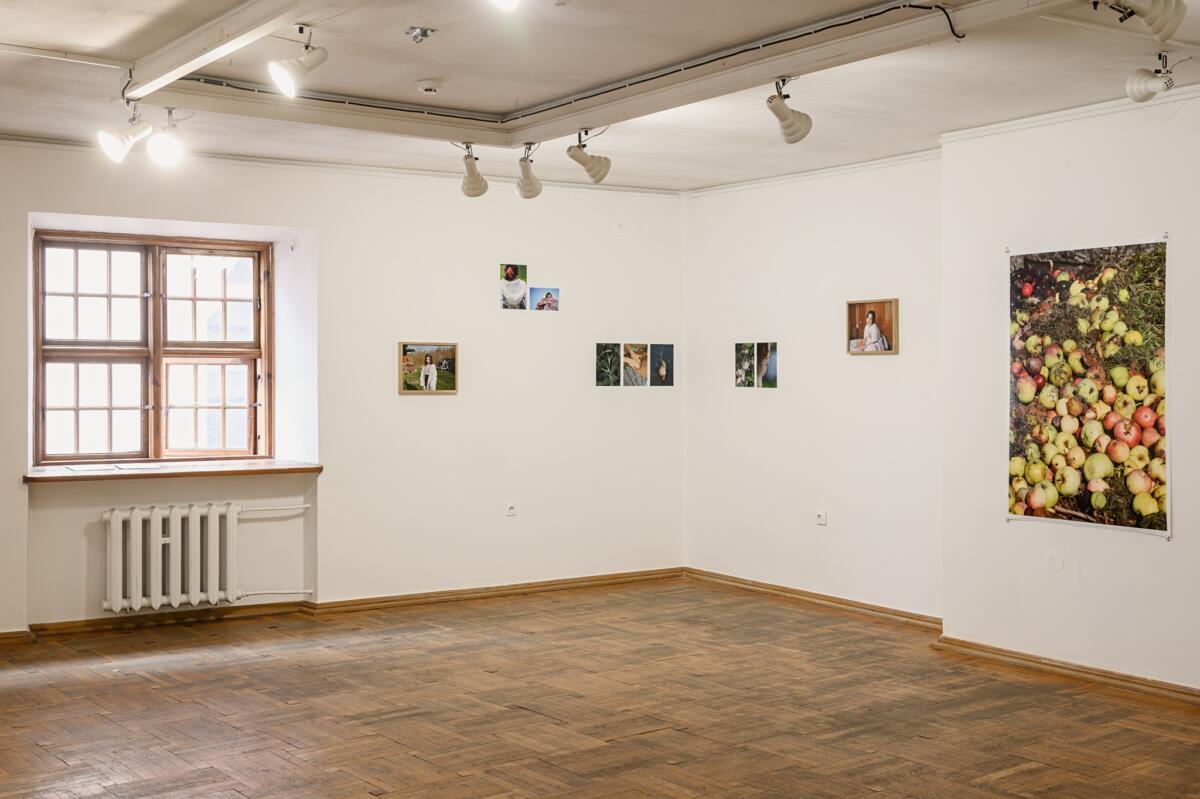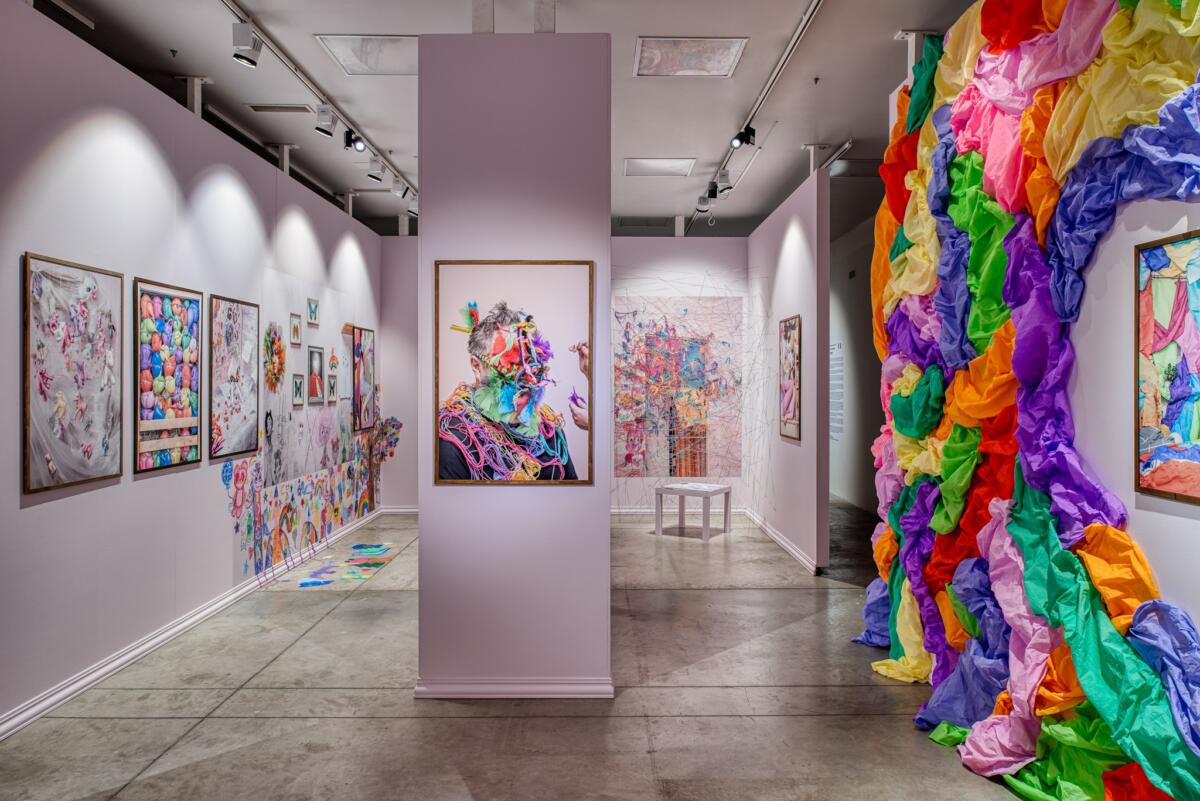
Riga Photography Biennial is an international contemporary art event, focusing on the analysis of visual culture and artistic representation through photography. Every other year it offers the NEXT program, which alternates with the main program, and is dedicated to focusing on young and promising artists from the Baltics, Nordic countries, and Europe who are still in the early stages of their careers. In 2023, the Riga Photography Biennial NEXT – 2023 (hereafter: RPB – NEXT) events occur from April 27 to July 23 and focus on “uncomfortable” topics through eight exhibitions and an educational program.
This goes hand in hand with the times we currently live in. Before we could recover from the pandemic, only now beginning to take stock of the impact it has had on us, we were forced to witness the escalation of the war in Ukraine, which unfortunately has not yet come to an end. In a time of confusion, the RPB – NEXT urges people not to remain silent, but to engage in discussion despite how uncomfortable it may make them feel. This also raises the question of how these themes can be addressed and how young artists and curators choose to do so. One can conclude that the artists handle the topics without the brutality that we inevitably already experience in the daily news. Instead, they offer a sensitive, nuanced view of what is going on around them, not only encouraging viewers to become more empathetic but also proving that making art is not a comfortable process in itself.
Photography is a powerful tool for tackling uncomfortable subjects, and this is how Polish artist Michalina Kacperak reveals a personal narrative about her family – her sister and her alcoholic father – in the exhibition Soft Spot, curated by festival director Inga Brūvere, in collaboration with Riga Art Space, Jednostka Gallery, and the National Lodz Film School in Poland. The personal nature of this complex story fuels the body with the power of conviction. Any distance between the sister in the photographs and the viewer is also broken down by the exhibition’s design (also by Inga Brūvere), which is arranged as the artist’s sister’s room – a space within a space. The effect is achieved by light-filled portable display panels, which are placed parallel to the walls of the exhibition space, inviting visitors to enter behind them. The inside of the panels is filled not only with photographs, but also with a tangle of coloured threads, childish drawings that spill out onto the floor, defying the boundaries set by the walls, and fabrics reminiscent of childhood barricades made of blankets. Childhood, which lays the foundation for the adults we will become, is instantly transformed by the courage and creativity of the artist’s little sister, thus also healing the observer – the older sister. These photographs hold special knowledge that the artist and her family carry with them, all while playfully overcoming what could be seen as boundaries in the exhibition design and encouraging the viewer to look inwards as well.

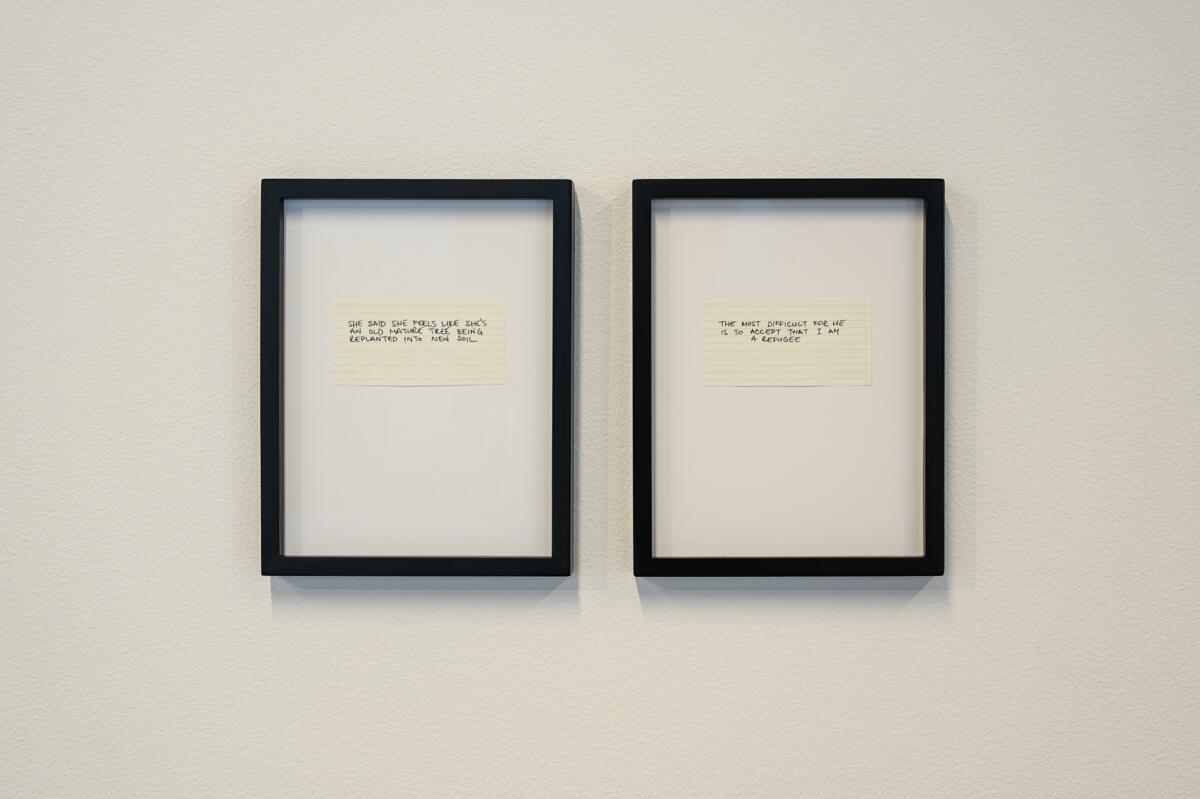
Winner of the Seeking the Latest in Photography! award, Lithuanian artist Ieva Baltaduonytė’s solo exhibition Uprooted (ISSP Gallery) speaks with conceptual depth about the forced crossing of geographical borders. The Russian war in Ukraine has uprooted millions of people from their homeland, separating them from the environments they know. Ieva Baltaduonytė has worked with Ukrainian refugees in Lithuania, studying the traces that migration leaves on people’s lives, which are at first hard to understand. Portraits of people are interspersed with photographs of dark, dense forests, creating a foreboding sense of fear, but instead of losing oneself in the forest, it is in the concrete jungle of the city that haunts us. It seems to magnify the state of loneliness and alienation of a migrant who joins a new society and is separated from their home. At the same time, the visitor is being watched by the tense eye of a woman in one of the photographs, reminding us that they are not just pictures, but depictions of real people. The expression on her face reveals that the dark eeriness of the forest, as if the thickets next to her have taken up residence within her.
The story of geographical borders is continued in the solo exhibition On Transitions: Impressions of Abu Dhabi by United Arab Emirates-based Latvian artist Adele Bea Cipste, curated by LOOK! co-founder and exhibition program curator Raivis Alksnis. The artist’s personal story of moving to Abu Dhabi speaks to the complexity of cultural identity. Although the exhibition does not answer the question of whether the artist feels more connected to her homeland or her current place of residence, the works on display seem to invite viewers to question and re-evaluate their perceptions and prejudices about the United Arab Emirates. Instead of the architectural splendour associated with the country, photographs are taken of suburbs, full of shabby and cheap architecture. The roofs of buildings are covered with a sea of satellite dishes on concrete blocks while the walls are covered with large, run-down signs. The exhibition, built in the doorway of a residential building, lets in the noises of the street through the open door, implicitly adding to the artist’s urban remarks on graffiti in the city tunnels and tourist souvenir shops she chooses to highlight through her works.
Half-Love, Latvian artist Diāna Tamane’s solo exhibition curated by Evita Goze (LV), explores the relationship between relatives through a series of photographs capturing her experience with her half-sister Elīna. Set in their family home in the idyllic seaside village of Kursīši, Tamane’s photographs visually and metaphorically employ time as the primary motif. The same greenhouse, the same landscape, the same feeling of summer, but seeing the girl as she grows up, you can tell that there are years between the photos. In her photographs, Tamane not only spends time with her younger half-sister but also relives her childhood, offering touching reflections against the serene backdrop of the village. Half-Love combines sensitive portraits of her sister with improvised documentary images, while the site of the Latvian Museum of Photography, with its 16th-century merchants’ building interior, preserved in authentic detail, complete with creaky wooden stairs and parquet floors, gives the exhibition a home-like feel. Turning family photographs into catalysts, Tamane reveals an intimate autobiographical story that unfolds in a circular composition on the museum’s main floor and continues as subtle notes about the summer in her photographs on the floor above. Watching the girl grow up as she looks into the camera lens, one is unwittingly reminded that the function of photography as a store of memories has not changed throughout the centuries.

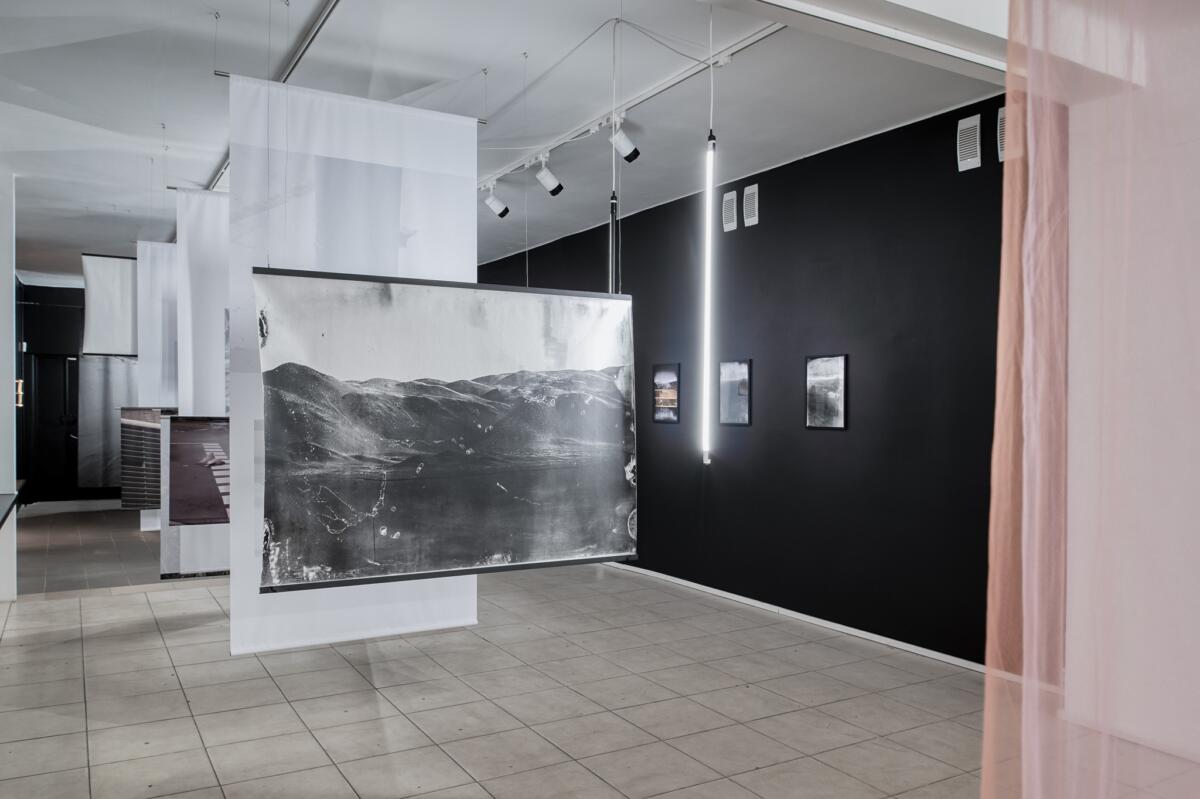
The Emerging Curator! award-winning exhibition Time Found, hosted at Pilot, introduces visitors to an exploration of the complex relationship between human memory and our perception of place and space. Four artists capture the subjective nature of these connections in a variety of artworks, using associations, thoughts, and bodily sensations to create collections of feelings and maps of memories. Curated by Laima Daberte, the exhibition offers a shelter to fuel the inner creativity of both herself and the audience. The curator’s background in architecture has also played a significant role in her interest in how space is formed – even though it already physically exists, we continually perceptually re-create and re-experience it. Photography thus becomes a tool to look at it differently, inviting us to rethink how we conceive and remember our surroundings. Meanwhile, the curator’s installation of the artworks confirms that the search is not only conceptual, but also scenographic, as a solution has been sought to encompass the gallery’s complex exhibition space. Visitors can hide behind artworks of various sizes, pass through baldachins, and stand beneath a ceiling-mounted sheet of fabric printed with the texture of the sea.
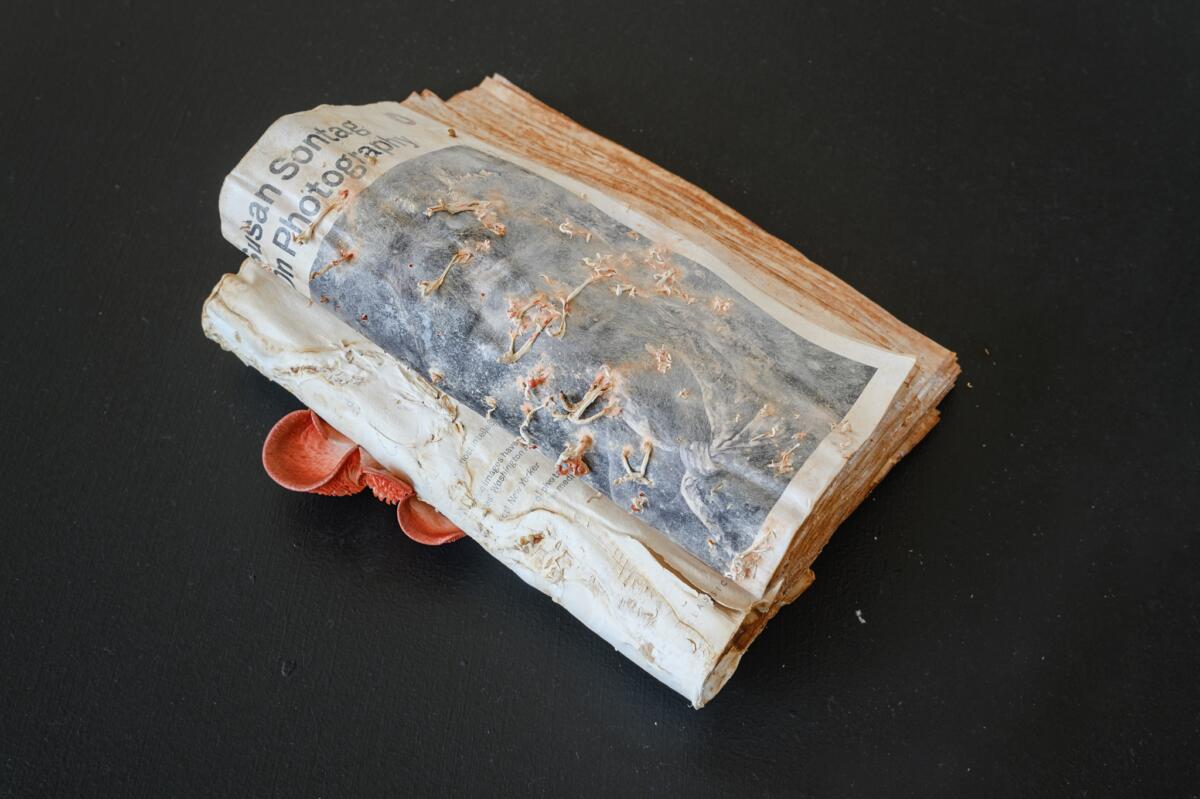
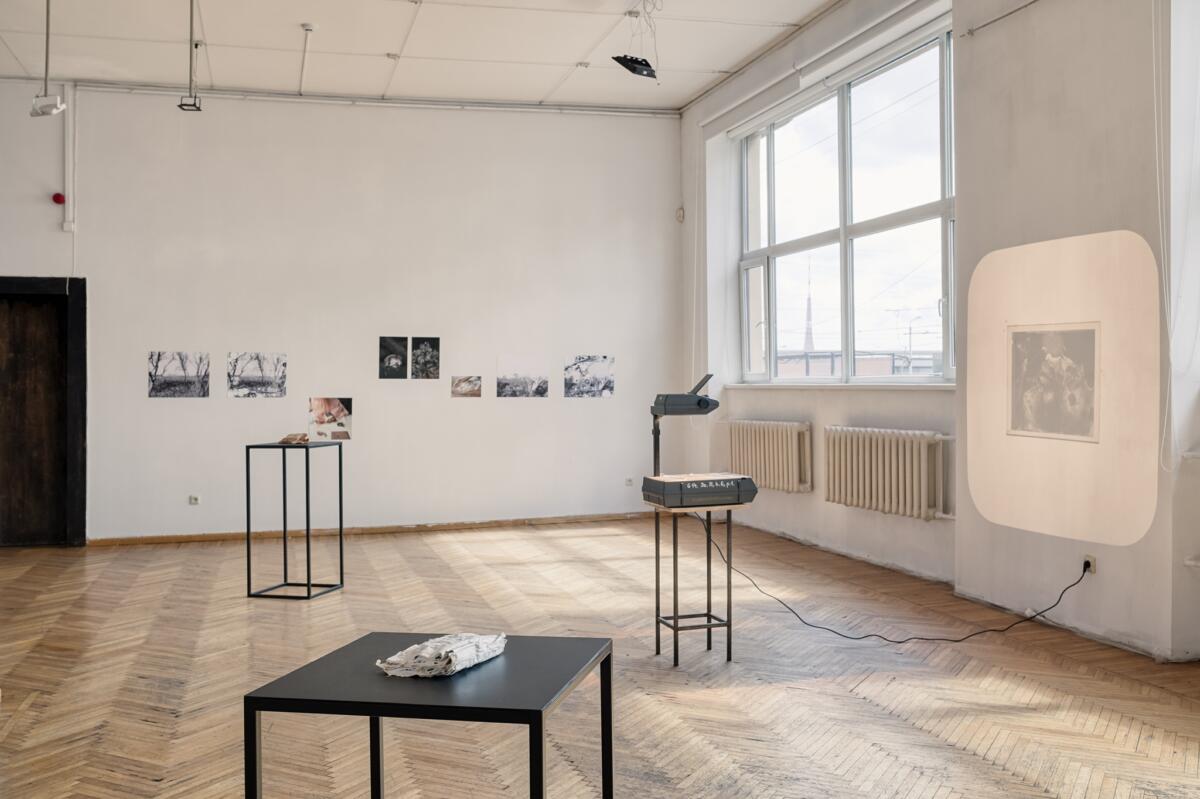
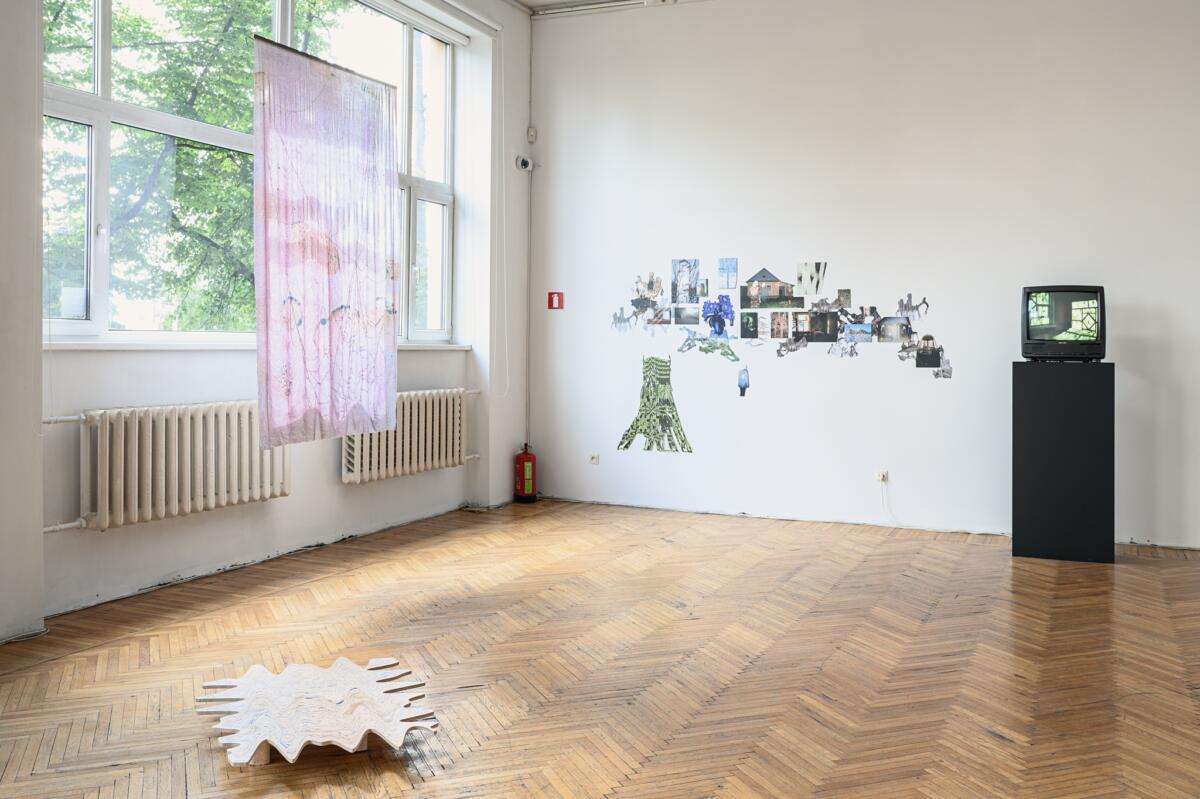
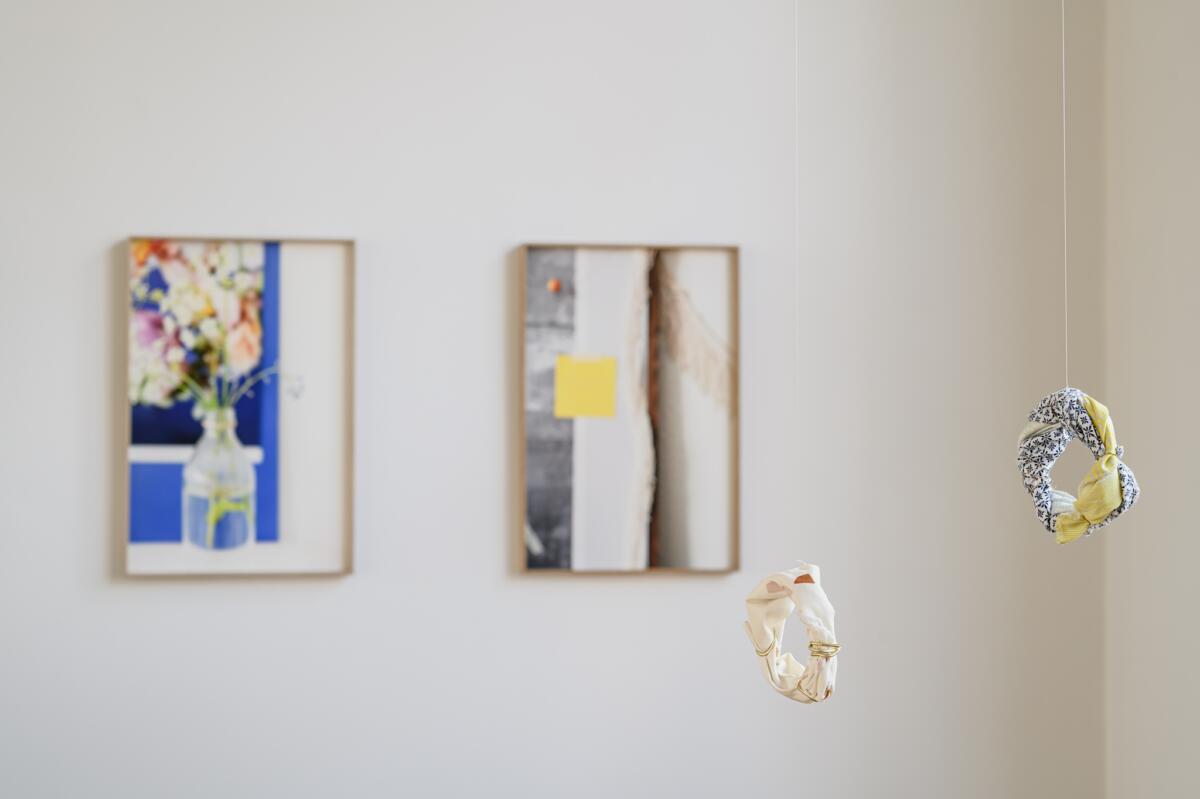
The exhibition Language of Flowers at the gallery for the Artists’ Union of Latvia, is an introspective journey of four artists from different countries. These artists embark on different quests to uncover the true essence of the subjects they explore, which are nature, culture, individual family, and collective social history. The title of the exhibition in Latvian means to speak indirectly, or “to talk around” something, suggesting that their approach embodies the working style of a biologist/poet as they carefully dissect the language of their chosen creative medium. This exhibition not only explores the artist’s individual desire to understand their place in the global landscape, but also delves into fundamental questions about identity and man’s place in the world. Their vision challenges entrenched notions that revolve around human desires and instead promotes a deep respect for the interconnectedness of the environment. By delving into the idea of ecosystem, these artists advocate a collaborative and symbiotic relationship with the world, offering an alternative to a cruel consumerist way of life. At the same time, the exhibition curated by Inga Brūvere and Marie Sjøvold is itself as fragile and delicate as a flower, connecting the various works of the individually working artists into a meadow-like ecosystem.


The urban exhibition by Ukrainian artist Elena Subach features a touching series of photographs, Grandmothers on the Edge of Heaven, a tribute to the vitality and resilience of the elderly women of Western Ukraine. Using vivid images taken during religious celebrations and ceremonies in Ukraine, Subach highlights the rich cultural heritage represented by these women. Their clothing serves as a form of communication, symbolising resistance to poverty and post-Soviet greyness. Through it all shines the grandmothers’ unwavering faith and hope for a better afterlife that will come despite the hardships they face. Subach’s photographs encourage reflection on generational differences and the importance of mutual support. It is also important that the images are placed at public transportation stops in the city centre, thus playing on the accessibility of photography, as a means of democratically sharing information in an environment that is freely accessible to people who might not visit the exhibition spaces otherwise. The project is curated by Inga Brūvere and has been made in collaboration with the Odessa Photo Days Festival.
The exhibition Safe Light is presented in the catalogue dedicated to the RFB – NEXT 2023 as a beginning, and at the same time a conclusion of the event. Curated by Evita Goze and Yulia Krivich, the exhibition features photographs by nine young Ukrainian artists. Safe Light focuses on photography as one of the tools for constructing, questioning, and unifying national identity. “Awkward” topics such as war, separation, and loss are presented through sincerity and love. Farewells are said with smiles at the train painted in the colours of the Ukrainian flag, suffering is dealt with in embraces, ruins are overshadowed by the sweeping wings of a bird, while monuments are covered with sandbags to protect them from Russian bombing. The photographs thus reaffirm that the dynamic and changing nature of art ensures that it continues to reflect and respond to the complexities of our society, and the broader world in which we live.
In addition, uncomfortable topics were discussed not only in the exhibitions but also in the education program, the central event of which was the annual international conference. This year curated by Adam Mazur, entitled Awkward Topics: Troubleshooting, the conference gathered art theorists, critics, and artists to explore how unpleasant phenomena such as burnout, depression, addiction, anxiety, guilt, toxic relationships, and all kinds of emotional breakdowns manifest themselves in photography. The success of the conference heavily relied on a diverse range of speakers who shared their experiences. Among them were Sergey Melnitchenko (UA), Sasha Kurmaz (UA), Visvaldas Morkevicius (LT), Zuzana Pustaiova (SK), Agnieszka Sejud (PL), Inuuteq Storch (DK), Karolina Wojtas (PL) and Diana Tamane (LV). The intimate and raw discussions at the conference struck a chord within listeners as they reflected on the speakers’ own experiences and struggles, promoting empathy and understanding.
Edited by Katie Zazenski
The Riga Photography Biennial is carried out in cooperation with a number of partners and supporters: State Culture Capital Foundation, Riga City Council, Association of Culture Institutions of Riga City Council, Exhibition hall “Riga Art Space”, Art Academy of Latvia, Experimental Art Space of the Art Academy of Latvia “Pilot”, Artists’ Union of Latvia, ISSP Gallery, LOOK gallery, Latvian Museum of Photography, NoRoutine Books, gallery “Jednostka”, Odesa Photo Days (UA), Cultural Endowment of Estonia, VV Foundation, National Film School in Łódź, Nordic Council of Minister’s Office in Latvia, Royal Norwegian Embassy in Riga, Danish Cultural Institute in Latvia, Estonian Embassy in Riga, Embassy of Finland in Riga, Nordic Culture Point Mobility funding, Hibnerstudio, Rixwell Hotels, Valmiermuiža Brewery, Printing house “Adverts”, Arterritory.com, Echo Gone Wrong, Noba.ac, and BLOK magazine.
Imprint
| Exhibition | Riga Photography Biennial – NEXT |
| Place / venue | Riga, Latvia |
| Dates | 27.04 - 23.07.2023 |
| Photos | Ingus Bajārs |
| Website | www.rpbiennial.com/ |
| Index | Adam Mazur Adele Bea Cipste Agnieszka Sejud Artists' Union of Latvia Diāna Tamane Elena Subach Evita Goze Ieva Baltaduonytė Inga Brūvere Ingus Bajārs Inuuteq Storch Karolina Wojtas Laima Daberte Latvia Marie Sjøvold Michalina Kacperak Raivis Alksnis Riga Riga Photography Biennial Roberta Atraste Sasha Kurmaz Sergey Melnitchenko Visvaldas Morkevicius Yulia Krivich Zuzana Pustaiova |


